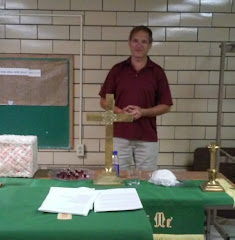“I urge…that requests, prayers,
intercession, and thanksgiving be made for…kings and all those in authority” (1
Timothy 2-12).
As we
celebrate our nation’s birth, you’d be hard-pressed to find a more
All-American church than the Presbyterians.
From the very beginning, we’ve been involved in and supported our
nation’s work.
- 25% of the signers of the Declaration of
Independence were Presbyterian. The
only minister to sign it, John Witherspoon, was a Presbyterian pastor.
- The Presbyterians were such a major influence in the
War of Independence that King George
III and many members of the British Parliament called it “The
Presbyterian Revolution.”
- When delegates for the Constitutional Convention met
in 1787 to lay out the blueprint for our nation’s government, they used
the Presbyterian form of church government as a model.
That’s not to
say, however, that we Presbyterians always agreed with our government’s
decisions. Back in 1833, there was a
bitter division over the US government that split Old Union in half. Some of our forebears were upset about the
Constitution’s claim that civil power comes from the people. They were convinced that the authority to
rule a nation comes from God alone, and refused to participate in a government
that didn’t recognize its covenant relationship with God. Old Union, however, traces its roots to the
faction that decided to take part in our nation’s government, in spite of this
flaw.
Our
denomination has always found it important to speak to our nation’s
policy-makers as part of its responsibility for the stewardship of our
country. As General Assembly stated
clerk Gradye Parsons put it, on the one hand we “have been defenders of the
role of government, and on the other hand, disturbers of governments.
Presbyterians have argued with the government about many issues, such as
slavery, education, temperance, labor conditions, segregation, war, and the
environment.” We recognize patriotism is
not a simple support of whatever our nation does. For Presbyterians, patriotism means speaking
out on issues that will help our nation be a just land.
As I write
this column, our church’s General Assembly, the national governing council, is
preparing to meet in Detroit. Every two
years, elders and ministers from across the nation gather to discuss and vote
on issues that affect our church. During
these meetings, General Assembly frequently speaks out about matters of
national and international importance.
We recognize that God calls us to be good stewards of our nation and the
work it does. We are called to speak for
what we believe to be God’s will for our nation. Some of these topics are controversial, and
you may disagree with what the General Assembly decides. And that’s perfectly fine! We are part of a church that recognizes
freedom of conscience. We are free, and
in fact encouraged, to discuss and debate these issues among ourselves, with
the goal that we may bear witness to God in a nation in need of his guidance.



